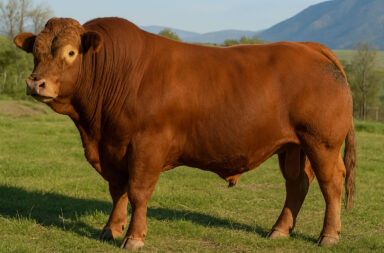Sustainable Livestock Farming: Best Practices for Eco-Friendly Rearing.
Livestock farming plays a huge role in feeding the world, but it also impacts the environment. The good news? Farmers can adopt sustainable practices to raise animals responsibly while protecting the planet.
If you’re into farming or just curious about eco-friendly food production, here are some best practices for sustainable livestock rearing.
1. Rotational Grazing: Let the Land Breathe
Instead of letting animals graze in one spot until the land is bare, rotational grazing moves herds between different pastures. This gives grass time to regrow, prevents soil erosion, and keeps the soil healthy. Happy soil = happy animals!
2. Feed Them Right (And Local)
Livestock feed often comes from faraway places, increasing carbon footprints. Opting for locally sourced, organic feed reduces emissions. Some farmers even grow their own feed or use food waste (safely processed, of course).
3. Manure Management: Waste to Resource
Manure is natural fertilizer, but if not handled properly, it can pollute water and air. Composting manure or using it in biogas systems turns waste into energy and nutrient-rich soil boosters.
4. Choose Resilient, Native Breeds
Some livestock breeds are better suited to local climates and require fewer resources. Native breeds often resist diseases better and thrive on natural forage, reducing the need for extra feed or medication.
5. Reduce Antibiotics & Chemicals
Overusing antibiotics leads to resistant bacteria, which is bad for animals and humans. Sustainable farms focus on preventive care—clean living conditions, balanced diets, and natural remedies when possible.
6. Water Conservation Matters
Livestock need water, but waste can be a problem. Installing efficient watering systems, collecting rainwater, and recycling water where possible helps cut down on unnecessary usage.
7. Agroforestry: Trees + Livestock = Win-Win
Planting trees in pastures provides shade for animals, improves soil quality, and absorbs carbon dioxide. Animals get shelter, farmers get healthier land—everyone benefits.
Final Thoughts
Sustainable livestock farming isn’t just good for the planet—it’s also better for animal welfare and long-term farm productivity. Small changes can make a big difference, whether you’re a farmer or a consumer supporting eco-friendly practices.
What do you think about sustainable farming? Have you tried any of these methods? Let’s chat in the comments!


